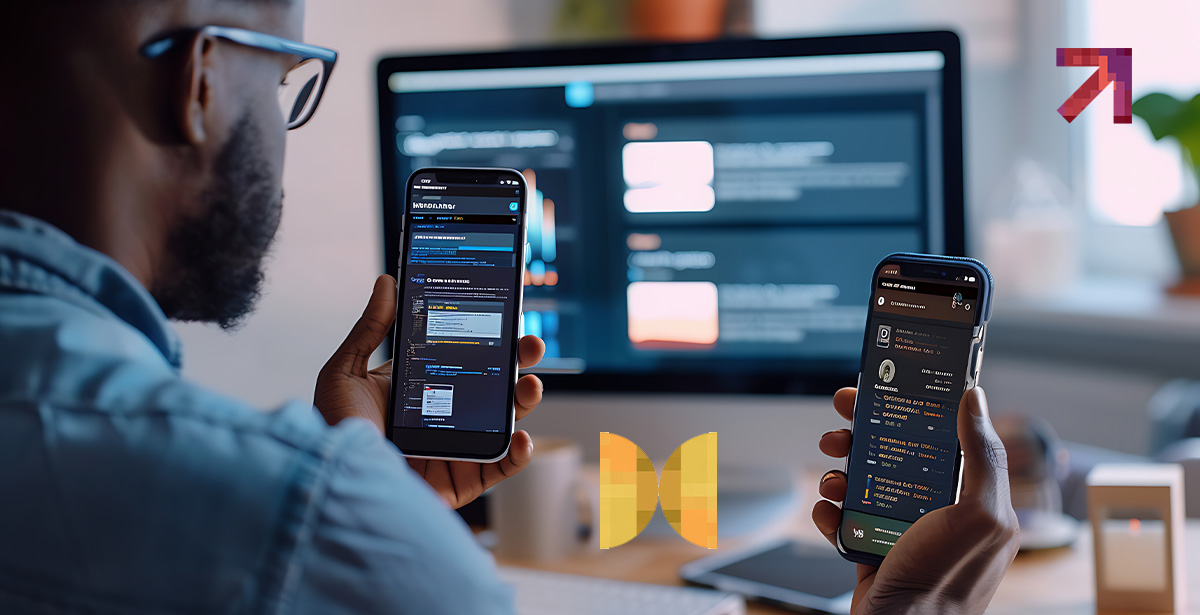10 Education Portal Development Tips for a Platform Your Competition Will Hate You For

Education portal development is one of the thriving services in the education technology (EdTech) market.
Even beyond educational institutions, corporate EdTech is as popular, with experts estimating it to be valued at $27.5 billion.
Unfortunately, an education portal project can go sideways easily unless you’re aware of the challenges you may face. And that’s what the following lines will be covering.
But First, Let’s Talk About the Basics of Education Portal Development
An education portal is a digital platform or designed to provide a centralized hub for educational resources, tools, and information.
Also known as eLearning portals or learning management system (LMS), they’re used in various educational settings, including schools, colleges, universities, corporate training, and online learning platforms.
Education portal development entails the creation of these platforms to support educational activities and services. Some of the features developers usually include are –
- User authentication to allow users to access the portal’s features with varying levels of access
- A content management system (CMS) for uploading, organizing, and updating educational materials
- A Learning Management System (LMS) to facilitate the creation and management of online courses
- Communication tools such as discussion forums and chat to promote collaborative learning
- Assessment and testing via quizzes, etc., along with features for grading and providing feedback to students.
- Analytics and reporting features to help teachers and administrators make data-driven decisions
- Parental/corporate access to allow parents/admins to monitor users’ progress
Why Education Portal Development Is a Great Idea
Whether you lead an educational institute or company’s L&D or are an appreneur on the hunt for the next big project, an education portal offers many benefits.
Access to Continuous Learning Resources
Education portals provide easy access to a wide range of educational resources, including digital textbooks, lectures, videos, and interactive simulations. The latter two make learning more engaging and interactive.
Employees especially benefit as such materials support lifelong learning while ensuring their professional development and skill-building. Therefore, they can re-skill and be better prepared for future challenges.
Personalized, Flexible Learning
Portals can be tailored to individual students’ needs and learning styles. Therefore, they get personalized learning paths and adaptive content to help them progress at their own pace.
Learners also enjoy the added flexibility these platforms deliver. After all, they can access educational materials and coursework from anywhere with an internet connection.
Measurable Learning Outcomes
Education portals collect and analyze data on learners’ performance. This, in turn, enables instructors/companies’ L&D to make data-driven decisions to enhance teaching methods and curriculum development.
Positive Impact on Bottom Line
Education portal development allows organizations to improve productivity as well as profits, while reducing turnover.
To be more precise, eLearning can help achieve your company’s goals by –
- Educating sales reps on the company’s offerings, improving their sales skills and lowering the cost per customer acquisition
- Saving money on training programs while ensuring employees learn more effectively and at their own pace
- Providing flexibility and convenience to employees while maximizing their knowledge retention
10 Education Portal Development Tips to Create a Winning Platform
With the basics covered, it’s time to get to work. So, without further ado, here are the tips and recommendations you came for.
1) Keep It Simple
You may want your education portal development team to include all the features you’ve seen elsewhere. However, this can make your portal too complex and difficult to access.
If you want to ensure your platform’s success, you need to keep it simple. In return, that’ll make it easy to access and use.
2) Ensure Users Can Access Relevant Information Quickly
The portal shouldn’t just offer learners quick access to all the information they need.
It should also provide educational institutions and organizations with important details such as attendance and completion percentage too. Equally as fast.
A good way of getting this done is by engaging all the stakeholders to understand what metrics they need.
Also make sure to find out what bottlenecks your portal will address so that you can decide on features to counter them.
3) Design for Non-Technical Users
Not everyone using your education portal will necessary be on the same level of digital literacy. Therefore, you need to ensure its user-friendliness, even to non-technical users.
For example, you can include an in-line editor to allow instructors to create and update content. This beats putting them through a technical process that will impact their efficiency.
4) Don’t Forget to Integrate Your Existing Information Systems
If you’re working with a proficient education portal development provider, chances are they’ll recommend this themselves.
Integrating existing information systems you use will enhance the convenience the platform delivers. This step will further help with metrics such as absences, medical leaves, etc.
5) Be Thorough While Addressing Data Handling and Management
One of the common challenges of education portal development is data handling and management. Especially when it comes to syncing changes in real-time.
For instance, if instructors make changes to a course, the website should reflect them too. So, you need to ensure that your eLearning platform can handle huge amounts of data effectively.
Moreover, you need to customize the dashboard according to the users roles accessing your data.
Your platform should also be robust to avoid frequent crashes and other types of issues that can reduce its credibility. For that, rigorous testing and feedback from end-users will come in handy.
6) Don’t Venture into the Development Stage Without Clarity on Features
Unfortunately, some choose to take shortcuts in an effort to speed up their education portal development process. This will come back to haunt them in later stages.
Without understanding your target audience and what they need, your platform may be useless. Even if you think you’ve added all the features you can think of, your efforts will go to waste if they’re not what users need.
So, you need to do your research and discuss end users’ requirements. Bounce ideas off the development team and be open to suggestions to decide. Doing so will help you determine the features you should include.
7) Be Open to Extending the Platform’s Functionality to Mobile
As people increasingly rely on their smartphones, you’ll need to include a mobile app in your project’s roadmap.
You can either have a progressive web application (PWA) or a dedicated mobile app that enables data access anywhere and everywhere.
Just remember to carefully select the features of your mobile app as well. For instance, you should include push notification alerts and seamless access through a single log on.
Another important aspect to ensure is mobile-first design. This will make your platform appear more polished and professional in smartphones.
8) Choose Your Tech Partner Wisely
One of the ways to guarantee launching an education portal that’s better than that of your competitors is choosing the right partner.
A good team will have experience using top technologies to create a stable, highly efficient portal. It’ll also ensure that your platform won’t need rework for quite some time.
Moreover, it’ll ensure you don’t pay too much later to fix mistakes. That way, you’ll have more money for future updates.
So, do your due diligence to find the right tech partner for you. And remember – be open and don’t hesitate to ask about every single detail. A reliable development company will always be happy to answer.
9) Have Realistic Deadline to Avoid Compromising on Quality
As enthusiastic as you may be about the results of your education portal development efforts, you need to be patient. You can’t expect a team to deliver a solution within a week without risking its quality or functionality.
Ideally, you should aim for a tech partner who can develop a minimum viable product (MVP), i.e., a version of your platform with enough features to be usable.
Working with an Agile company can also help break the solution into modules to rapidly create them.
10) Include a Robust Feedback Mechanism
Implementing a robust feedback mechanism is crucial for the development and improvement of an education portal. Users can then provide valuable input and insights about their experiences with the portal.
Just make sure that you have –
- Easy-to-use, user-friendly feedback forms that are accessible from within the portal
- Multiple feedback channels like online forms, email, chat support, or even dedicated feedback buttons or widgets
- The capability to categorize their feedback: for example, you can have categories like usability, content quality, technical issues, and feature requests
You can discuss what else to add with your tech partner to support easy feedback collection.
Ready to Start Working on Your Education Portal?
Our app development team is ready too to help you with all your education portal development needs. Simply use the form below and let’s discuss your requirements.
We know just how great the results of our collaboration will be. And how envious your competition will get seeing your platform on the World Wide Web.





